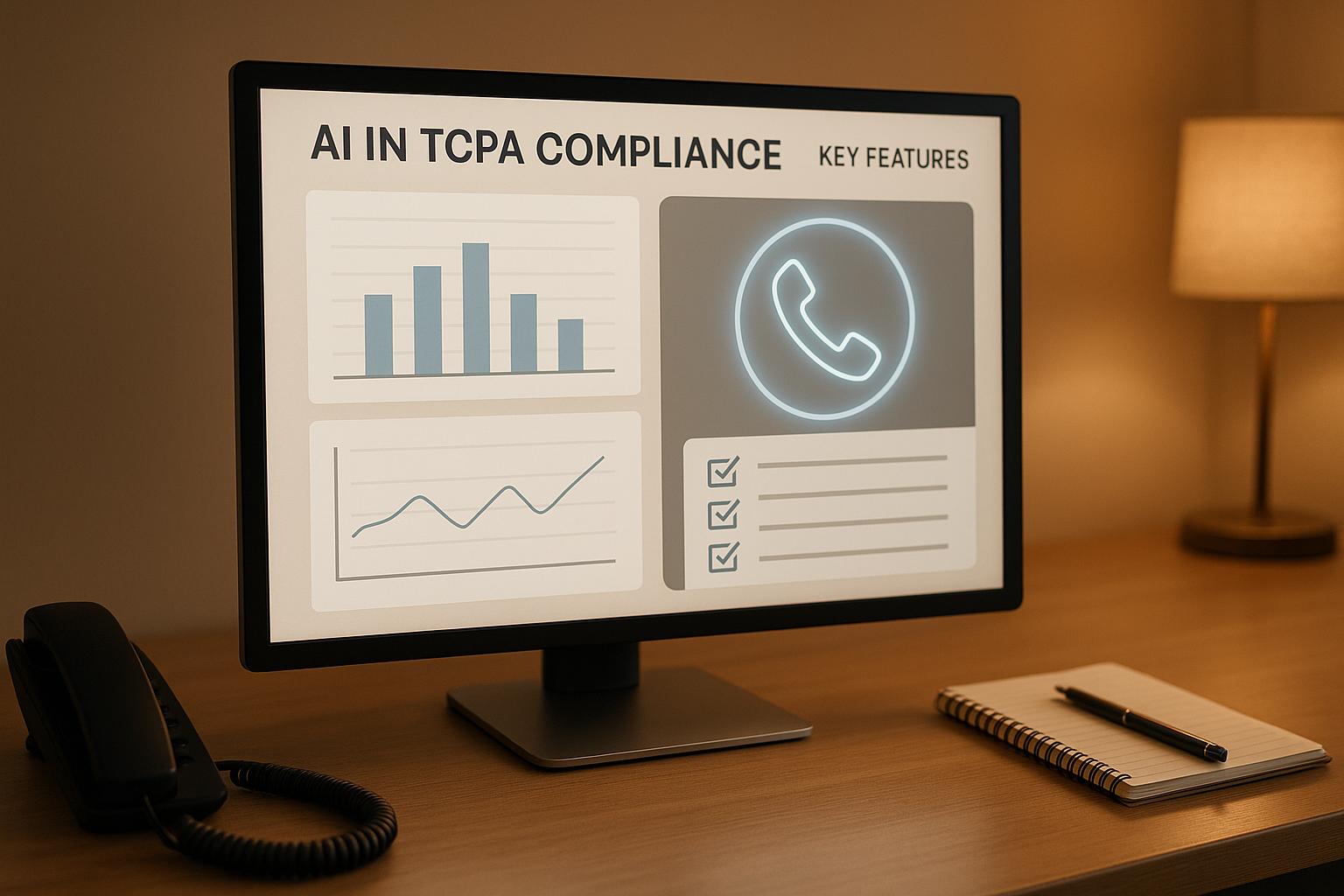
Managing TCPA compliance is critical for businesses to avoid fines of up to $1,500 per call. Manual processes often lead to costly mistakes, especially for companies handling high call volumes. AI tools simplify compliance by automating consent verification, monitoring calls, and updating do-not-call lists in real time. This reduces legal risks and improves operational efficiency.
Here’s a quick breakdown of four leading platforms for TCPA compliance:
- Kixie: Automates consent verification and monitors calls in real time. Best for call centers with high volumes.
- Salesforce: Integrates compliance tools with CRM, offering consent tracking, DNC list management, and risk monitoring. Suitable for larger enterprises.
- HubSpot: Offers user-friendly dashboards for consent tracking and risk detection. Ideal for marketing teams.
- ReportTelemarketer.com: Empowers consumers to report violations and pursue legal action. Focused on post-violation enforcement.
Quick Comparison:
| Platform | Strengths | Limitations | Best For |
|---|---|---|---|
| Kixie | Real-time call monitoring | Limited text compliance | High-volume call centers |
| Salesforce | CRM integration, AI risk analysis | High cost, complex setup | Large enterprises |
| HubSpot | Simple interface, consent tracking | Limited legal enforcement | Marketing teams |
| ReportTelemarketer.com | Legal action for violations | Reactive, not preventive | Consumer protection |
AI tools like these help businesses stay compliant while adapting to evolving regulations. Choosing the right solution depends on your company’s size, budget, and specific needs.
What are the TCPA Rules for Using AI in Telemarketing? | TCPA Rules for AI Voice
1. Kixie
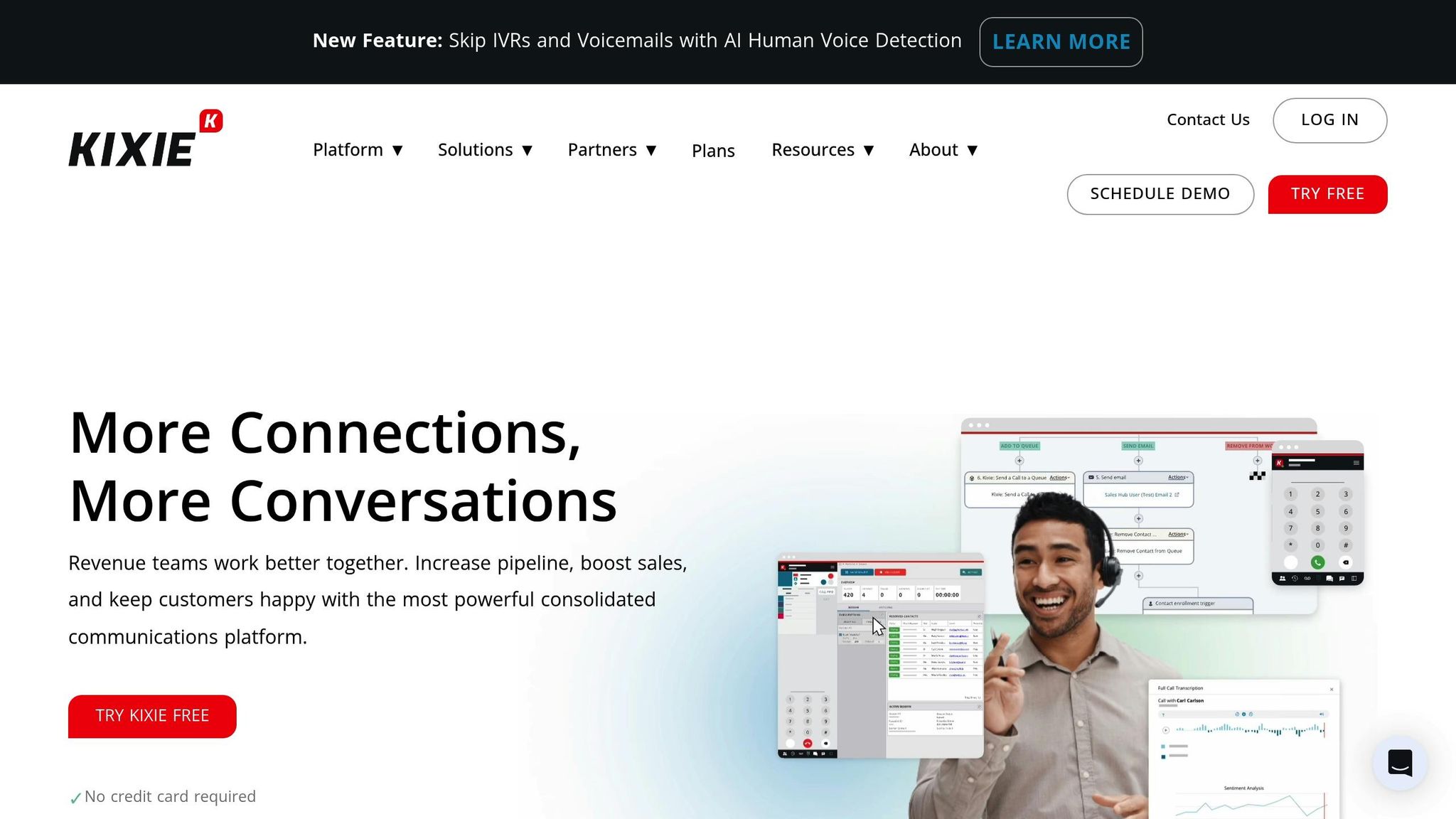
Kixie helps businesses stay compliant with TCPA regulations by automating the process of verifying explicit recording consent before a call starts. This reduces the risk of human error and ensures all calls meet federal requirements.
2. Salesforce
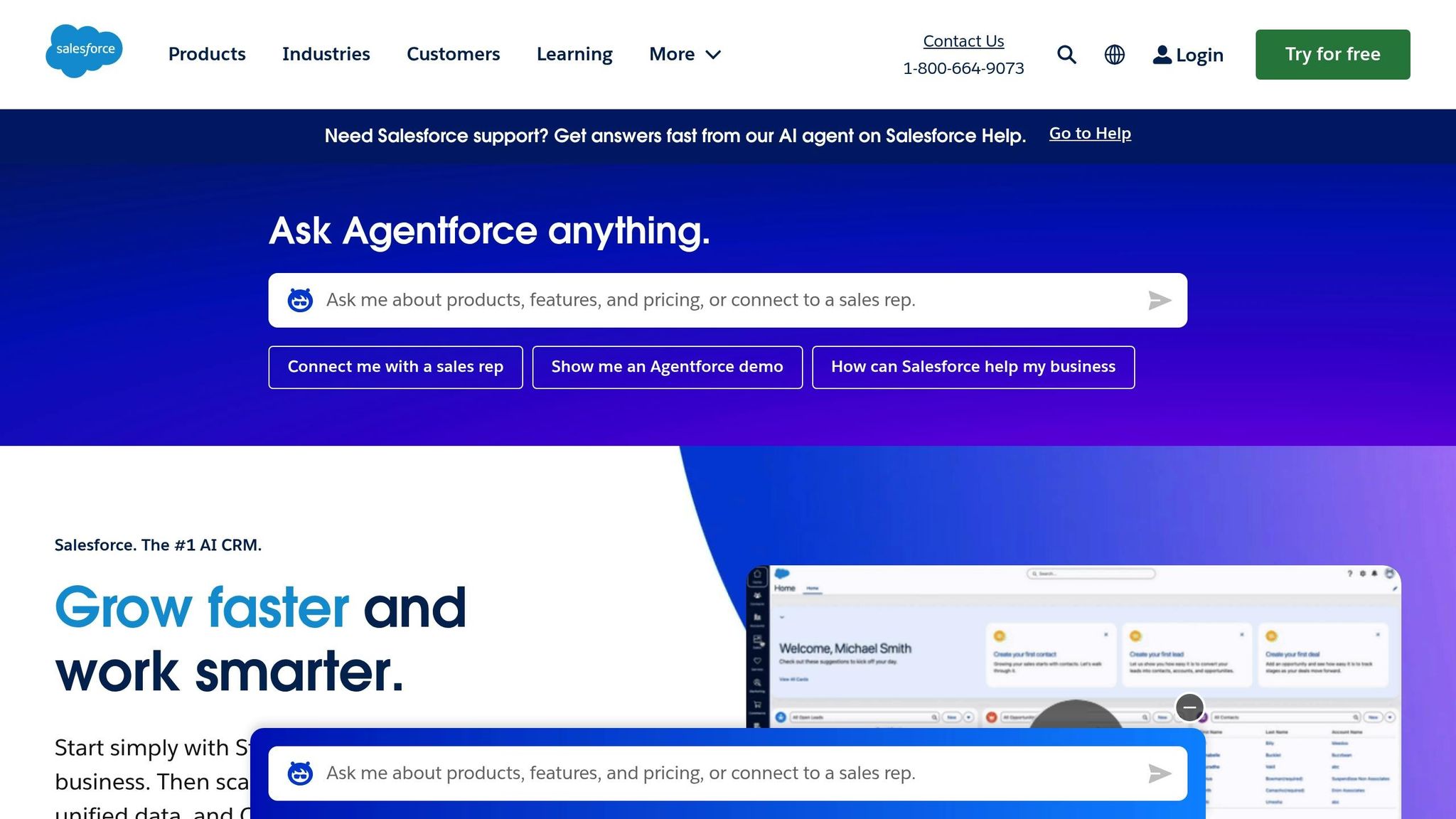
Salesforce offers built-in tools for managing TCPA compliance through its Service Cloud Voice and Marketing Cloud platforms. By seamlessly combining customer communication with detailed record-keeping, Salesforce enables businesses to stay on top of telemarketing regulations and customer preferences. This integration simplifies the process of maintaining compliance with TCPA requirements.
DNC List Management
Salesforce provides a centralized system for managing Do Not Call (DNC) preferences. By syncing internal suppression lists across its various modules, the platform ensures that businesses respect contact opt-outs across all communication channels.
Consent Tracking
The platform keeps a detailed record of customer consent, whether it’s collected through web forms, phone calls, or in-person interactions. This creates a reliable audit trail. Additionally, Salesforce’s Einstein AI analyzes communication trends, helping businesses identify when it might be time to re-confirm consent with certain contacts.
Risk Monitoring
Salesforce actively tracks call frequency and engagement levels to identify potential compliance risks. This allows businesses to adjust their outreach strategies to align with TCPA standards.
Legal Documentation
By logging all communications and consent records, Salesforce equips businesses with the documentation they need to demonstrate compliance in case of regulatory scrutiny.
3. HubSpot
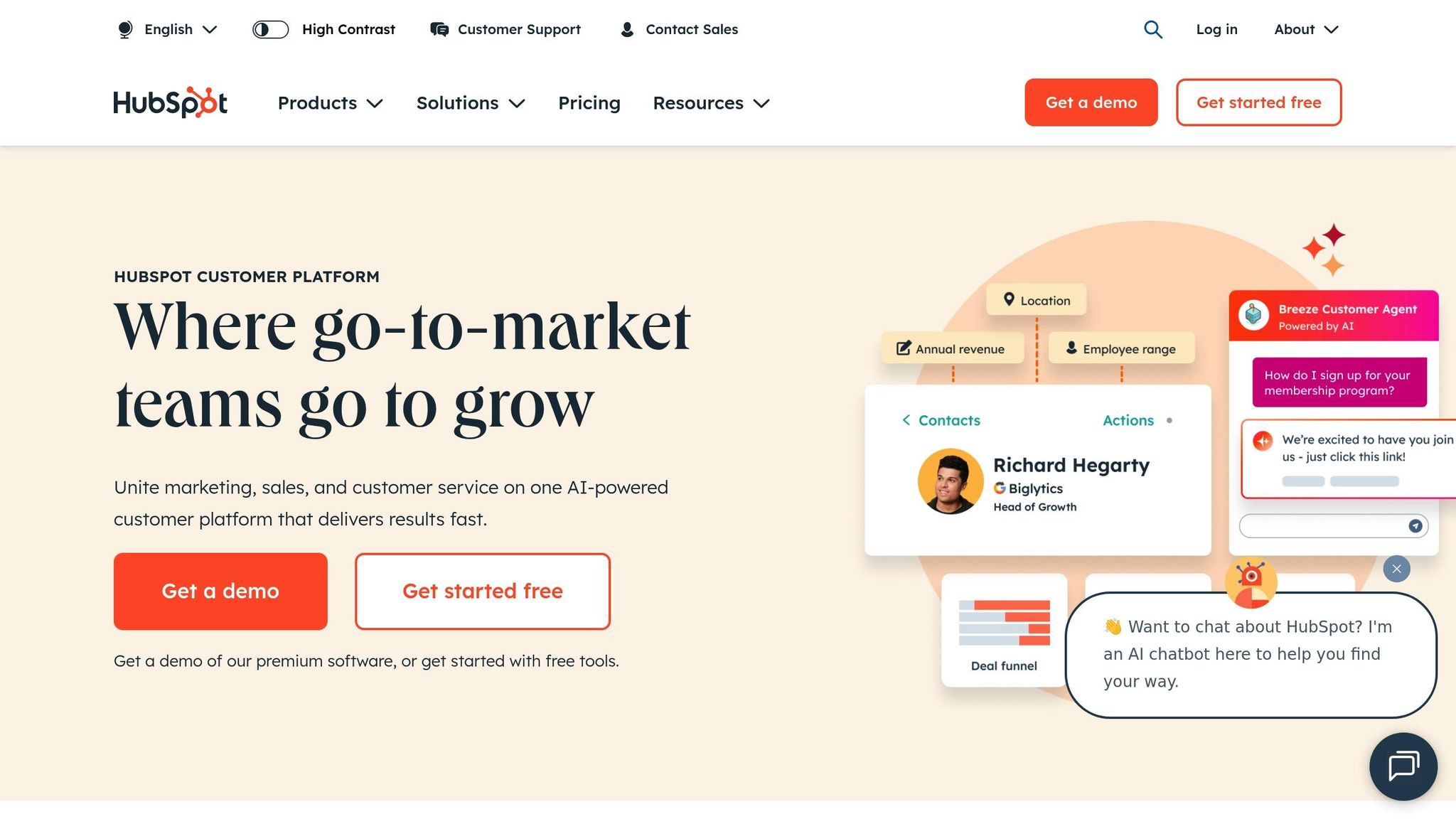
HubSpot, like Salesforce, incorporates strong regulatory safeguards into its platform. It emphasizes compliance with regulations like the TCPA, requiring businesses to obtain consent before initiating any outbound communications.
Consent Verification
Before uploading personal data to HubSpot, businesses are obligated to ensure they have obtained proper consent from individuals.
Risk Detection
HubSpot employs AI and machine learning to track IP addresses and monitor access patterns. This helps identify potential security events and supports compliance efforts.
sbb-itb-a8d93e1
4. ReportTelemarketer.com
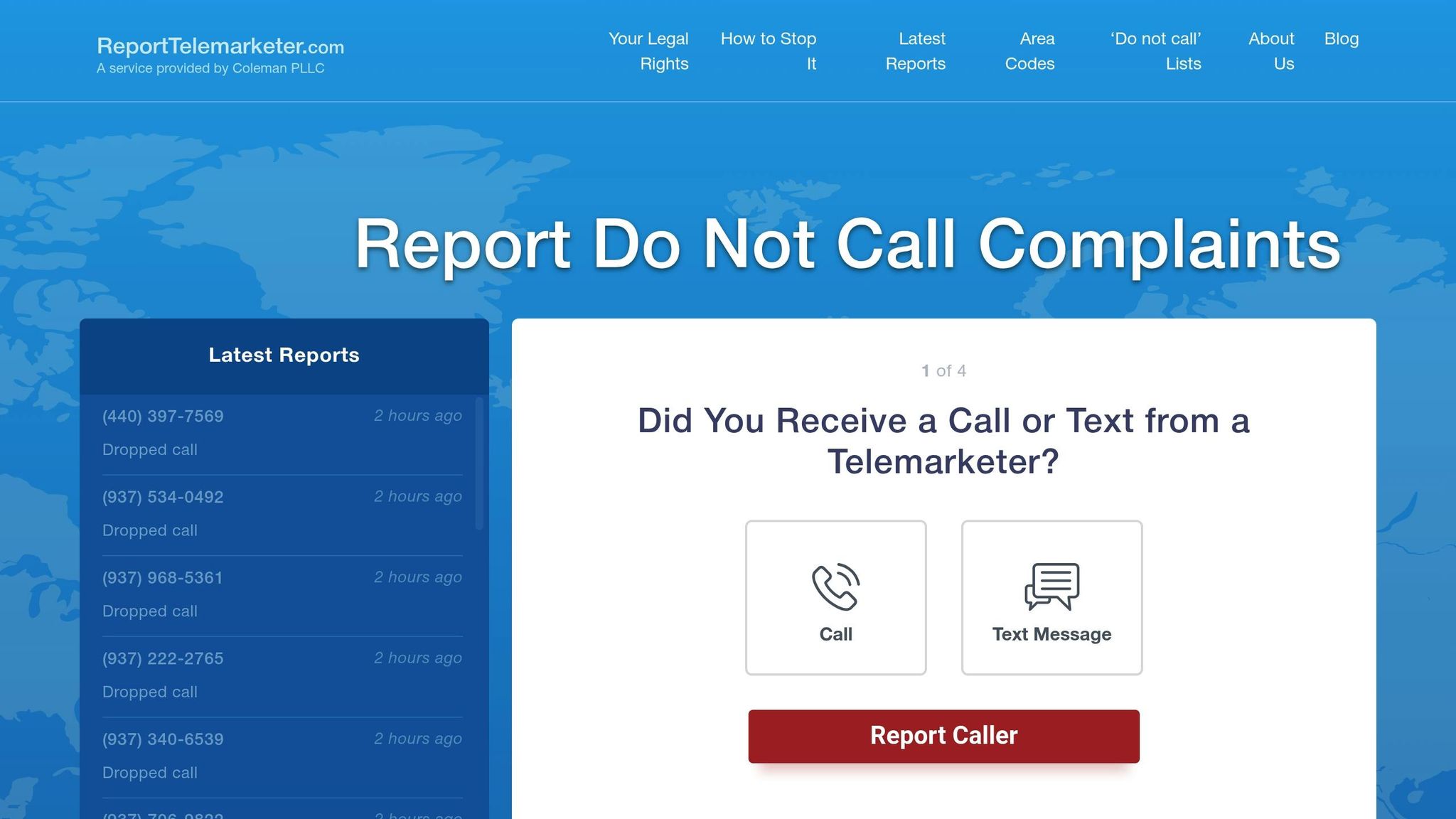
ReportTelemarketer.com stands out by focusing on consumer reports to enforce compliance, rather than just automating consent and risk monitoring.
Founded by Stefan Coleman, this platform gives individuals the tools to fight back against unwanted telemarketing calls and texts. By investigating telemarketing practices and identifying violations of consumer protection laws, it aims to hold offenders accountable.
Legal Support
The platform’s legal team specializes in handling violations of the Telephone Consumer Protection Act (TCPA). They take action by filing cease-and-desist letters or formal complaints. The best part? There are no upfront costs for users. Instead, attorney fees are shifted to the violators. Additionally, the service helps consumers recover money from telemarketers who break the rules.
Risk Detection
ReportTelemarketer.com uses its own tools to analyze complaints and spot patterns of non-compliance. By making information about reported telemarketers public, it not only keeps consumers informed but also provides businesses with insights to address potential compliance issues. This approach, which combines consumer-driven legal enforcement with compliance insights, complements AI-based consent tracking and creates a well-rounded strategy for tackling TCPA violations.
Advantages and Disadvantages
Choosing the right TCPA solution means weighing the strengths and weaknesses of each option based on your specific compliance needs. Here’s a closer look at how some popular platforms compare.
Kixie stands out for its real-time call monitoring, which is especially useful for businesses handling a large volume of calls. However, its focus on voice calls means it offers limited support for text messaging compliance.
Salesforce integrates seamlessly with existing CRM systems and includes a range of security features. Its AI tools can analyze customer interactions to spot potential compliance trends. On the downside, its complexity and high costs may pose challenges for smaller businesses.
HubSpot is praised for its intuitive interface and easy-to-use dashboards, making it a favorite among marketing teams for managing opt-in processes and tracking consent across channels. That said, its focus is more on prevention than on robust legal enforcement.
ReportTelemarketer.com takes a different approach by empowering consumers to report unwanted telemarketing calls and texts. It investigates violations and can issue cease-and-desist letters or formal complaints. However, this platform addresses violations after they occur, rather than preventing them in real time.
Here’s a quick comparison of these platforms:
| Platform | Primary Strength | Main Limitation | Best For |
|---|---|---|---|
| Kixie | Real-time call monitoring | Limited support for text compliance | High-volume call centers |
| Salesforce | CRM integration and AI-driven analysis | Complex setup and higher costs | Larger enterprises |
| HubSpot | User-friendly interface and dashboards | Limited legal enforcement | Marketing-focused teams |
| ReportTelemarketer.com | Legal action through consumer reporting | Post-violation response | Consumer protection and remediation |
Cost and Ease of Use
Costs vary significantly across these platforms. Traditional solutions like Kixie, Salesforce, and HubSpot require subscription fees that can range from hundreds to thousands of dollars per month. In contrast, ReportTelemarketer.com operates on a contingency basis, meaning there are no upfront fees, which makes it more accessible for individual consumers.
When it comes to integration, platforms like Salesforce and HubSpot often require a more technical setup and ongoing maintenance, which can be resource-intensive. On the other hand, ReportTelemarketer.com is designed for simplicity, with minimal technical requirements, making it easier for everyday users.
Speed vs. Long-Term Impact
The timeline for enforcement also varies. AI-driven tools like Kixie, Salesforce, and HubSpot work in real time or near real time to prevent violations. In contrast, legal actions initiated through ReportTelemarketer.com can take weeks or even months to deliver results. However, legal actions may address the root causes of non-compliance, offering a more lasting solution compared to tools that focus on immediate prevention.
Conclusion
When selecting an AI TCPA tool, it’s essential to match it with your business’s size and compliance requirements. For instance, Kixie is ideal for high-volume call centers with its real-time monitoring features. Larger enterprises might prefer Salesforce for its comprehensive CRM integration, while marketing teams often gravitate toward HubSpot for its user-friendly dashboards. These distinctions are crucial as compliance regulations continue to evolve.
Recent FCC rulings now extend to AI-generated voices, requiring explicit disclosure. This highlights the growing importance of compliance tools that can adapt to these changes. As AI continues to influence compliance practices, effective enforcement mechanisms remain a cornerstone.
ReportTelemarketer.com plays a distinct role by focusing on violations through consumer reporting and legal action. While proactive measures can reduce risks, enforcement ensures accountability when breaches occur. Operating on a contingency basis with no upfront costs, this service provides consumers with an accessible way to seek legal action against persistent offenders.
Under TCPA regulations, violations carry penalties of $500 per call, which can increase to $1,500 for willful breaches. With the global call center AI market expected to grow to $4.1 billion by 2027, at a CAGR of 21.3% from 2022 to 2027, businesses must strike a balance between the efficiencies of AI automation and the necessity of solid compliance strategies.
A well-rounded compliance framework combines proactive AI tools with consumer protection platforms like ReportTelemarketer.com. This approach ensures effective day-to-day oversight while addressing violations when they occur, helping businesses maintain full TCPA compliance in a rapidly evolving telecommunications landscape.
FAQs
How does AI help businesses stay TCPA-compliant when managing large call volumes?
AI has become an essential tool for businesses aiming to stay TCPA compliant, especially when managing large volumes of calls. By automating tasks like call monitoring and ensuring adherence to legal requirements, AI can help minimize the chances of violations. Tools such as AI-driven dialers and call recording systems make it easier to track consent accurately and avoid illegal autodialing.
On top of that, AI can detect suspicious behaviors – like rapid dialing or unauthorized activities – in real time. This kind of real-time monitoring not only helps companies sidestep hefty fines but also ensures they remain aligned with TCPA rules, making it easier to manage large-scale operations with confidence.
What should I look for in an AI tool to ensure TCPA compliance?
When choosing an AI tool for TCPA compliance, it’s essential to ensure it meets core requirements, such as obtaining prior express consent from consumers before initiating calls or sending text messages. The tool should also be equipped to identify and adhere to regulations surrounding artificial voices and automation – particularly in sensitive fields like healthcare, where privacy and compliance are paramount.
It’s also wise to select an AI solution that keeps pace with changing FCC regulations and can be customized to block illegal autodialing or robocalls. These capabilities are crucial for steering clear of expensive legal troubles and preserving consumer confidence.
How does ReportTelemarketer.com help consumers address TCPA violations?
How ReportTelemarketer.com Works to Combat Telemarketing Violations
ReportTelemarketer.com offers a simple and effective way for people to address unwanted telemarketing calls and texts that may violate the Telephone Consumer Protection Act (TCPA). Here’s how it works: consumers submit a report through the platform, and the team takes it from there – investigating the issue, identifying any legal violations, and acting on the consumer’s behalf.
With permission from the consumer, the platform can issue cease-and-desist notices or even file formal complaints against the offending telemarketers. The best part? This service doesn’t cost users a dime. Instead, attorney fees are sought directly from the telemarketers when it’s legally appropriate. By streamlining the process, ReportTelemarketer.com gives individuals the tools they need to stand up for their rights and put an end to those annoying, intrusive calls and texts.